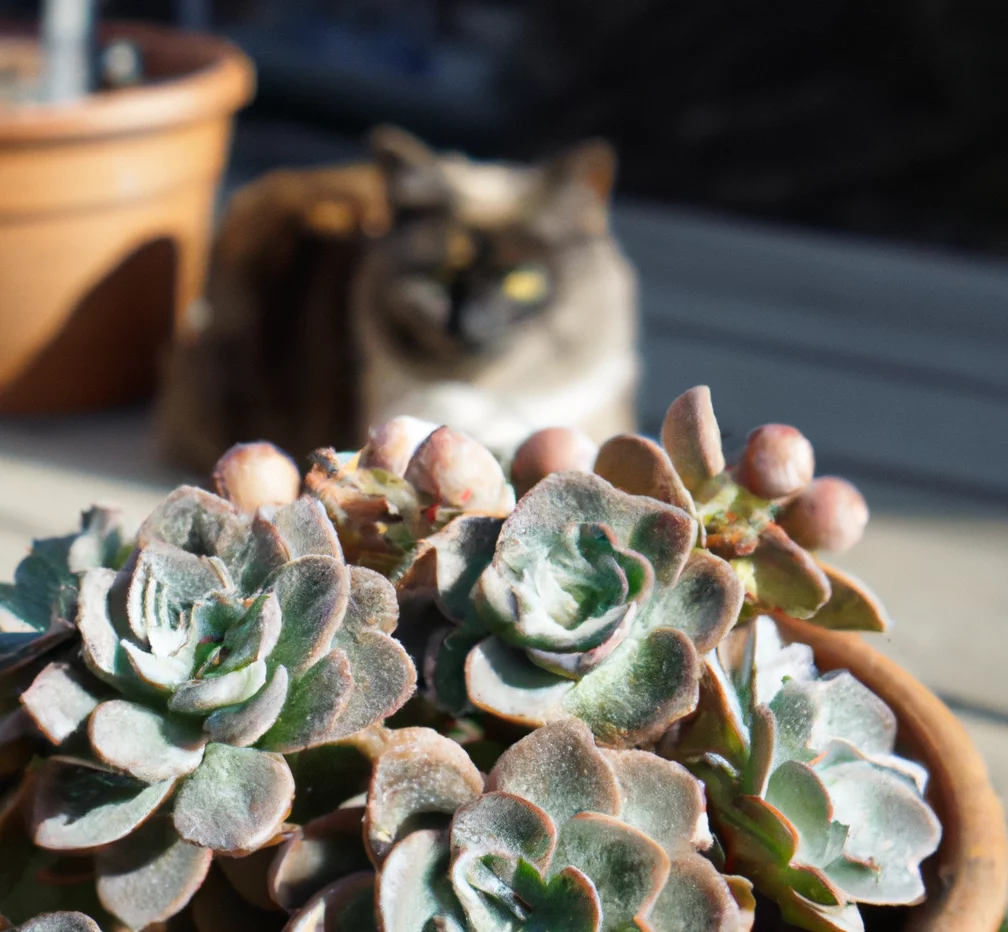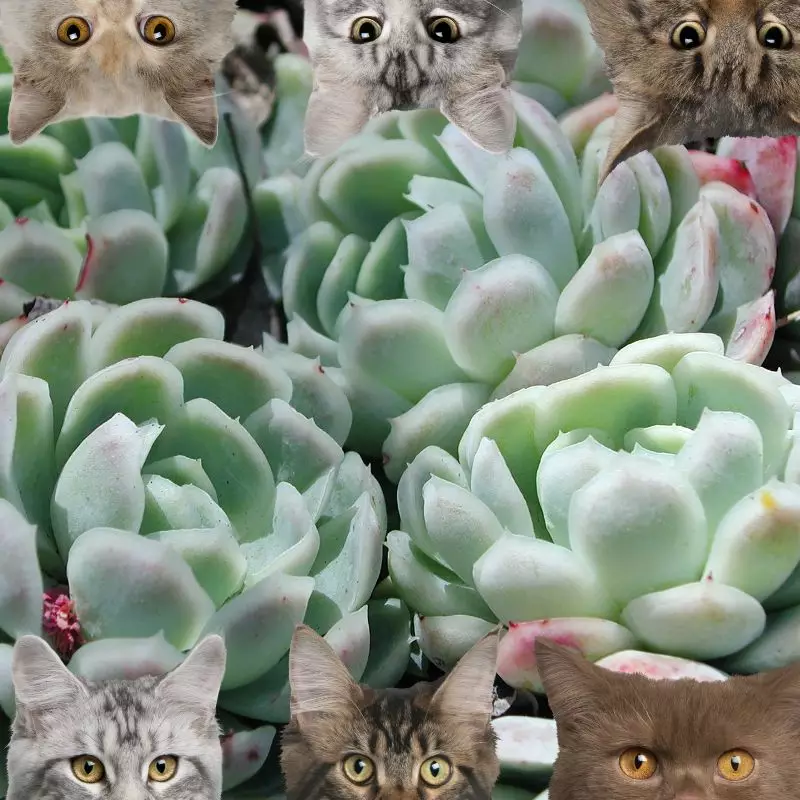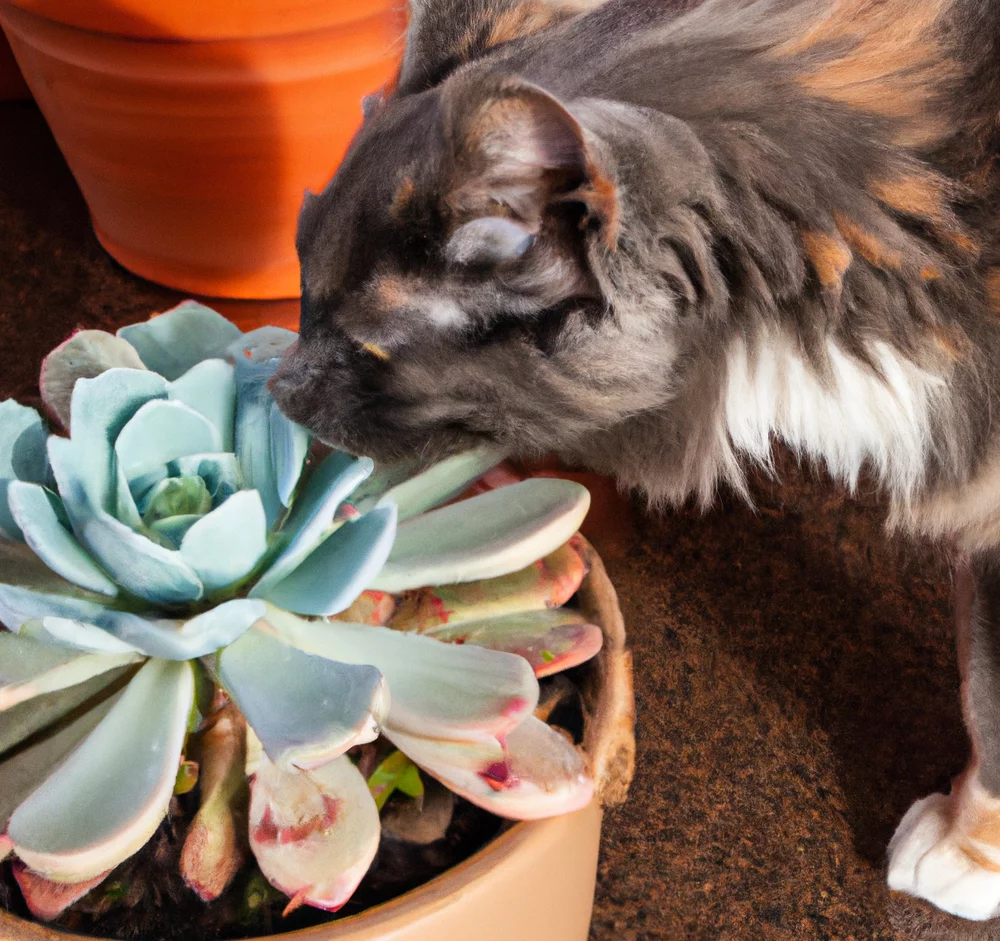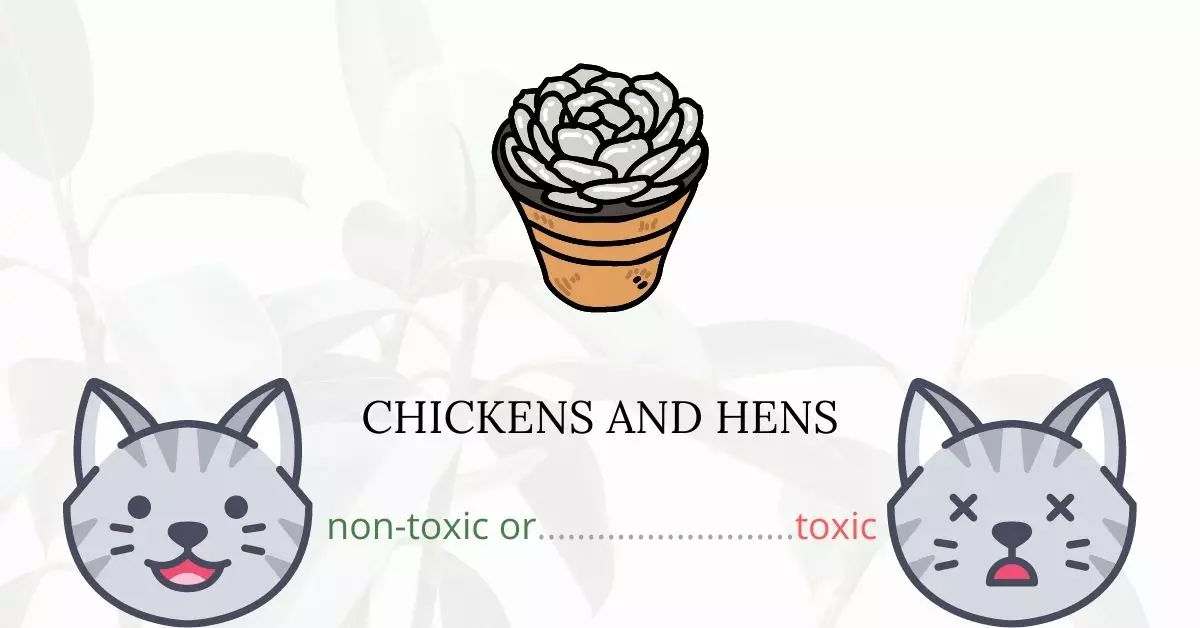Chickens and Hens, also known as Echeveria Elegans, are not toxic to cats. They contain no harmful compounds that might cause poisoning in our feline friends.
This article has been crafted in collaboration with a team of experienced DVMs (doctors of veterinary medicine). Their invaluable input ensures that we provide accurate and current information about the potential risks associated with various plants, Chickens and Hens in this particular case, and their effects on cats. Moreover, we have thoroughly researched high-authority websites, including ASPCA and PetMD, to corroborate our findings.
It’s worth noting that Chickens and Hens are also listed by the ASPCA (American Society for the Prevention of Cruelty to Animals) as non-toxic plants and are considered safe for dogs and horses as well.
Can Cats Eat Chickens and Hens or Echeveria Elegans?

A tiny bite of this succulent plant will not cause adverse effects in cats. However, it does not imply that you can feed this plant to your cats as part of their regular diet.
Because cats are carnivores, they lack the capacity to digest plant stuff entirely. If they ingest a lot of plant materials, they may have indigestion and may develop gastrointestinal symptoms including vomiting and diarrhea.
However, you should not be frightened because the symptoms should disappear as soon as the plant components are evacuated from the cat’s body.
What are Chickens and Hens or Echeveria Elegans?

Chickens and hens, scientifically known as echeveria elegans, is a flowering plant in the Crassulaceae family endemic to Mexico’s semi-desert environments. It is a succulent evergreen perennial that grows to 5–10 cm tall and 50 cm wide, with compact rosettes of pale green-blue fleshy leaves and 25 cm long thin pink stalks of pink flowers with yellow ends in winter and spring.
Echeveria elegans is grown as a decorative plant in rock gardens or as a potted plant. It grows well in subtropical regions like Southern California. This plant has received the Royal Horticultural Society’s Garden Merit Award.
Like other succulent plants, it produces several offsets that may be detached from the parents in spring and developed independently – thus the common moniker “hen and chicks,” which is attributed to various species in the genus Echeveria.
Keeping Cats Away From Chickens and Hens or Echeveria Elegans

If you are growing succulent plants like chickens and hens, you should place them in a high place or in an area where your cats cannot visit. While cats are known to be high jumpers, they will not usually get near plants that are not within their arm’s reach.
You may also cover your pots with aluminum foil. Cats hate the crinkly sound, texture, and odor of aluminum foil. This method will make your cats avoid your plants.
If your cats like scratching your plant pots, you may put double-sided adhesive tape around the plant pots. Felines detest the sticky texture of adhesive tapes so this will stop them from messing around your plants.
Cats usually snoop their noses around plants when they are bored. Since they are naturally curious, they will end up eating the plant. Keeping your cats engaged and mentally stimulated will also help in preventing them from nibbling or damaging your plants.
Plants to Avoid For Your Cats
If you are a cat owner and unsure if the plants growing in your yard are harmful to your cats, check out this list of toxic plants for cats. You can also check our list of non-toxic plants for cats.





